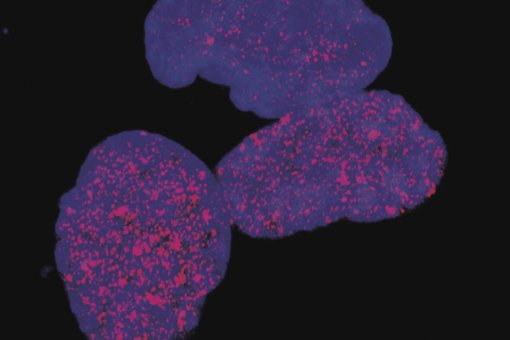Images
Participants

Contact

In Nature Cell Biology, researchers at IRB Barcelona describe a mechanism that governs adhesion between cells and therefore their capacity to move. The study may have implications in the fight against tumoral metastasis.
A study performed by researchers at the Institute for Research in Biomedicine (IRB Barcelona), in collaboration with researchers at the Instituto de Biología Molecular of the CSIC, reveal a mechanism that controls the movement of cells in a tissue by regulating cell adhesion. This same mechanism may be defective in diseases such as cancer and its metastasis, when tumour cells lose their adhesion to neighbouring cells and migrate through the organism. The results of this research have been published in this week’s Nature Cell Biology.
Specialists in development, Daniel Shaye, Jordi Casanova and Marta Llimargas, have studied the mechanisms that control cell movements during trachea development in the fly Drosophila. In this process, cells that initially form column of two cells deep, change their position to line up one after the other in a single file. A key element in the regulation of these movements is the amount of adhesive protein E-Cadherin located in the cellular membrane. Jordi Casanova, head of the Morphogenesis in Drosophila at IRB Barcelona, explains that "when movement starts, the levels of this protein in the cells decrease, thereby allowing them to slide one on top of the other, and once in this position the levels of this protein are re-established in order to seal the new binding alignment". The in-depth study of this phenomenon has led to the finding that the amount of E-Cadherin on the cell surface is controlled by the trafficking of this protein inside the cell and the identification of the elements that regulate this transport. During the experiments, the researchers induced or blocked cell movement by modifying the elements that control the trafficking of adhesive protein towards the membrane. "We demonstrate a mechanism that explains how cells can change their position within a given tissue. The sequence is clear: the greater the amount of protein, the greater the adhesion and the smaller the movement", recaps Casanova.
A mechanism may be dysfunctional during cancer progression and metastases
The role of E-Cadherin in the binding between epithelial cells is universal in all animals and therefore, following logic, the researchers believe that the mechanisms that regulate the levels of this protein may also be universal. "We speculate that the regulatory mechanism that we have discovered may also be present in other developmental contexts. However, in addition, fundamental elements of the mechanism may show a dysfunction in pathological processes such as the progression of cancer and metastases", adds Casanova. As revealed by this same researcher, the amounts of E-Cadherin and of one of the elements required for trafficking decrease in the progression of a kind of oesophagus cancer and this effect is related to the gain in tumour cell motility, which allows them to spread throughout the body more rapidly.
Thanks to this study, researchers working on cancer will be able to use animal models to test whether this mechanism is defective in other kinds of tumours and to study whether any of its genetic components are valid as therapeutic targets.
Reference Article:
Modulation of intracellular traffi cking regulates cell intercalation in the Drosophila trachea (2008)
Daniel D. Shaye, Jordi Casanova and Marta Llimargas.
Nature Cell Biology (doi 10.1038/ncb1756)
About IRB Barcelona
The Institute for Research in Biomedicine (IRB Barcelona) pursues a society free of disease. To this end, it conducts multidisciplinary research of excellence to cure cancer and other diseases linked to ageing. It establishes technology transfer agreements with the pharmaceutical industry and major hospitals to bring research results closer to society, and organises a range of science outreach activities to engage the public in an open dialogue. IRB Barcelona is an international centre that hosts 400 researchers and more than 30 nationalities. Recognised as a Severo Ochoa Centre of Excellence since 2011, IRB Barcelona is a CERCA centre and member of the Barcelona Institute of Science and Technology (BIST).





